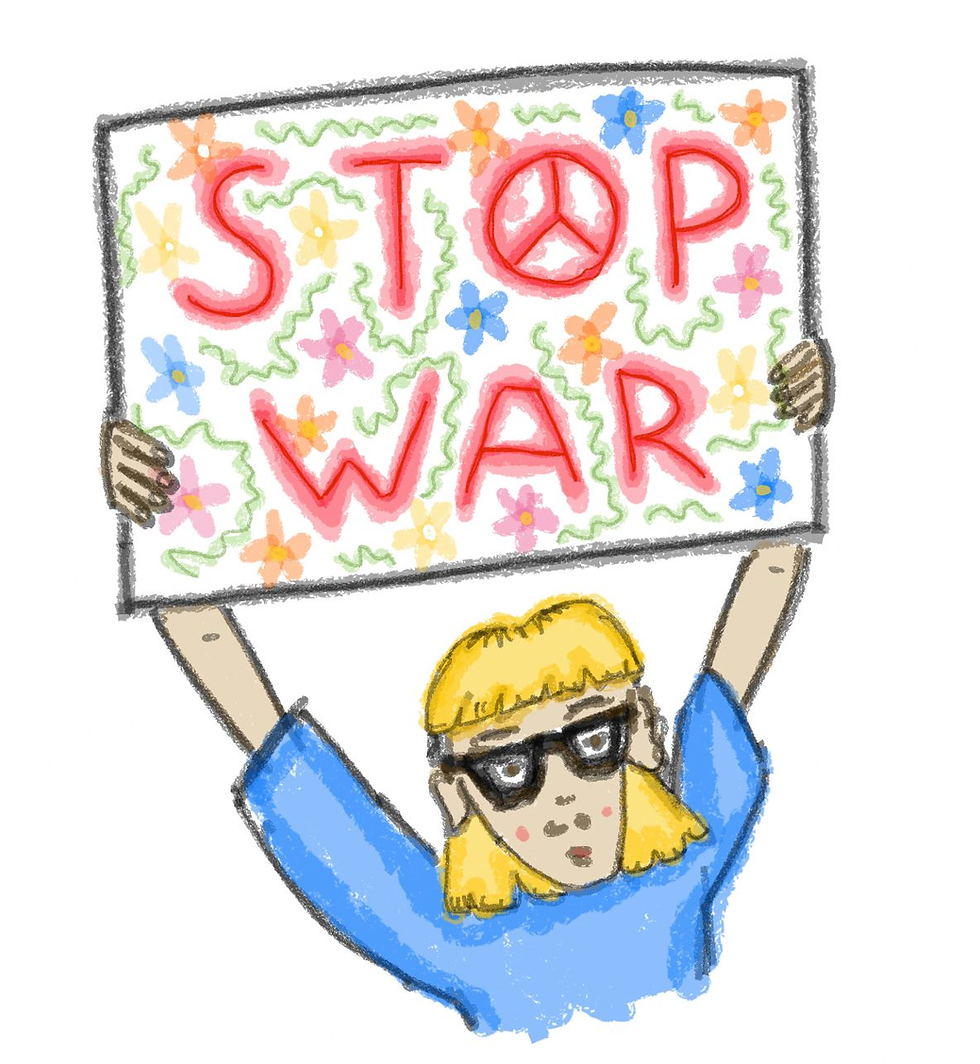What is a Liberal?
- Owen Thomas Webb
- May 19, 2023
- 4 min read

Illustrations by Megan Le Brocq
Do you call yourself a liberal? If you are reading this, then there is a good chance that you do, but you may be mistaken. What is a liberal? And what is liberalism in the context of an electoral political system where the values of one side are only liberal or conservative when viewed through the lens of the other?
What is liberalism? Liberalism has its place in British political lexicon as a label; a label for a party and its party line, or a label for an individual’s perspective on a cultural, social, or economic issue. This usage of liberal as an indicator of perspective is so commonplace in British politics and discussions of the matter in normal conversation, that it is probably still a mystery as to why there is a problem inherent in its usage. This is precisely the problem: self-describing as a liberal is not a clear communicator of a person or a body of persons’ ideological difference. It goes no way at all to communicating a clear and distinct answer to questions of cultural, social, or economic matters, when ideological difference is present at all.
Let’s clarify this statement. A person might self-describe as liberal if their view on economic policy is favourable to a lassaiz faire form of capitalism, where state intervention in banking and the stock exchange investments is minimal and the individual is left to their own devices to either make a fortune or not, as advocated for by the Heritage Foundation and some now unelectable factions of the Conservative Party. Just as this libertarian economic reform is a matter of financial rather than economic reform, so too is this a form of liberalism. In contrast to this, one might self-describe as liberal if they are articulating the view that non-heteronormative forms of sexuality should be unrestricted by the law or even culturally encouraged. This is a very different kind of liberalism. The first point therefore is this: that the liberal position is not a helpful position to take if one wants to articulate a coherent political philosophy or ideological principle.
Liberalism is more problematic when it comes to usage of the label in the context of our political system, where it is contrasted with conservatism. The problem is this: liberalism is only liberal relative to the conservative position, and the conservative position is, by definition, the status quo and thus is in the position to dictate the terms of the debate. Beyond the problem of the lack of specificity that identifying one’s politics on the liberal-conservative binary, is the binary system itself that one invests in when picking a side in a cultural or fiscal policy debate. The liberal places themselves in opposition to the status quo, and therefore is unable to see past the conservative framing of the issue at hand, be it economic, financial, or societal. One will succeed in nothing in the long term by buying into this binary system that has a default setting, and a limited amount of leeway in which to deviate from that, such as in the system that exists in Britain.
Liberalism and conservatism cannot be called ideological positions because there is no cogent, precise policy that can be associated with either. Instead, liberalism and conservatism are relative attitudes or societal value systems that have little to no connection to economic or even very much of social policy. This statement that liberalism and conservatism are on the same side with respect to societal issues is demonstrated by the so-called ‘trans debate’, as it is known. The liberal position by definition offers greater or equal social freedoms to transgender people than the conservative position, which in a country like the United Kingdom is unapologetically representative of Christian notions of the family, and which seeks to limit the social visibility of the non-nuclear family to the greatest extent that it can. However, neither liberals nor conservatives can approach this or any other issue without reference to pre-existing norms. Those being heteronormative, traditionalist Christian norms, on which apparently Labour MP Rosie Duffield and Conservative counterpart Miriam Cates find common ground. This is also true of economic policy, as demonstrated by the current Labour Party’s inability to see the economic crises of this country in any way differently to that way the Conservative Party does, and as anything other than an opportunity to win an election. Neither a conservative nor a liberal position offers a new point of reference from which to create policy, but they are looking in differing directions from the same starting point.
With reference to the apparent unanimity with which women in the British parliament are condemning transgender women and their right to exist as equal citizens, it could be concluded that liberalism is a philosophy of freedom for me but not for thee, as and when the governing class decides it to be. Furthermore, it is demonstrable that liberalism is the pseudo-ideology of the privileged. Figures such as J.K. Rowling, and others secluded from normal society, can claim that they uphold superior moral values by giving an impression of being vaguely friendly to left-wing ideas while using their platforms to articulate anti-social beliefs based mostly on the paranoia that comes with being part of the privileged few. Consider perhaps, before you take a liberal’s beliefs at face value, whether they must worry about the crises of housing and employment, crises which liberalism will never do anything to end.







Comments